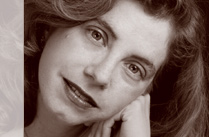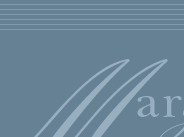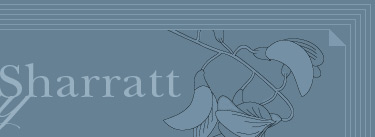|







. . . .
Sign up for
Mary's Newsletter.

Find Mary
Sharratt
on Facebook.
Find Daughters
of
The Witching Hill
on Facebook.
| 
 |
|
 |
E X C E R P T
Introduction: Interview with the Editors
So what is Bitch Lit?
Mary Sharratt: Bitch Lit is a smart and subversive celebration of female anti-heroes — women who take the law into their own hands, who defy society's expectations, who put their own needs first and don't feel guilty or get exterminated as a result!
Maya Chowdhry: Above all it's about women who refuse to be victims.
Why focus on Women anti-heroes?
MS: Bad girls aren't celebrated in art or popular culture the same way that men are. Literature is full of loveable male rogues, whereas transgressing women are depicted as witches. As a society, we condone men behaving badly — we continue to idolise the James Deans, George Bests, Liam Gallaghers and Pete Dohertys of this world. High profile women on the other hand are all too quickly vilified by the media the moment they display any signs of zealous ambition or louche behaviour.
MC: I think women have generally been more censored in their writing than
men and it's time we changed that. Male writers don't seem to have a problem
creating anti-heroes —there's plenty of Dick Lit out there already!
Is Bitch Lit a new genre?
MC: It's not a term you'll find in the dictionary — yet! Of course, writers were creating stories about strong female characters before we came up with the idea of Bitch Lit, just in the same way that there were lots of books written about simpering women before someone in a marketing department coined the phrase Chick Lit.
MS: There are some great examples of women anti-heroes in literature and popular culture (Medea, Lady Macbeth, Madame Bovary, Thackeray's Becky Sharp, and Thelma and Louise, for example) but most of them feature in cautionary tales where the wicked woman ultimately gets her come-uppance. More recently we've seen the hugely successful publication of Lionel Shriver's We Need to Talk About Kevin and Zoe Heller's Notes on a Scandal, demonstrating that there is a hunger for literature exploring the darker side of the female psyche.
Did you have a good response to your call for Bitch Lit?
MS: I was amazed by the wealth of stories we received. About a decade ago,
Hurricane Alice, a feminist literary journal in the US, solicited stories
on the theme "Legends of Bad Women." However, when the themed issue was published, the editors lamented the dearth of stories about women who were really, seriously bad. Most of the fiction concerned women who were slightly grumpy, or more assertive than expected, or who were really victims lashing out in self-defense. It appeared that "Bad Women" who
live up to the name were a taboo subject, even among self-identified feminists.
I was worried we might have a similar response. Thanks to Arts Council funding,
Maya and I had the distinct advantage of being able to go out into the community
and offer free workshops to help inspire and generate the kind of stories
we were looking for.
Are you being purposefully provocative in using the "B" word?
MC: Artists and their work should be challenging. The word bitch obviously has a lot of negative connotations — but what we're doing is encouraging people to unpack the word — to think about how the word has been used as a way of silencing strong-minded women and disarming it through appropriation — in the same way that nigger, paki, queer and dyke have been reclaimed in some instances.
MS: In North America, publications such as Bitch magazine and the Stitch 'n' Bitch guide to knitting have made the B-word increasingly acceptable, if still edgy and subversive. Many English people, on the other hand, have a true horror of the B-word. Some workshop participants appeared very timid and unsure about this whole Bitch Thing, but once we discussed the true nature of Bitch Lit and started the exercises, something amazing happened. They got stuck in, embraced their inner Diva and Bunny Boiler, and wrote gleeful tales of barbecuing the neighbour's dog, stealing the boss's Viagra, sabotaging their ex, and so on.
What can we expect to find in Bitch Lit?
MC: A range of styles and genre: horror to humour and Bitch Romance to Bitch Mystery, are used in surprising ways to bring us tales of poetic meditations, psychological drama and literary playfulness.
MS: They range in tone from the light-hearted "A Fairy's Story" to the savagely funny "Chinese Pancakes" and "Reader, I Mullered Him" to dark, disturbing tales of wrath and revenge, such as "Bad Momma" and "Lambswool." All
these stories, in one way or other, are tales of women and power. They are
the opposite of cautionary tales. They goad us and dare us to strip off our
niceness, be real, leave our safe haven and go out into the dark woods knowing
that the most dangerously sublime thing to be encountered in that forest
is ourselves unleashed.
 Back
to top. Back
to top. 
|
|





